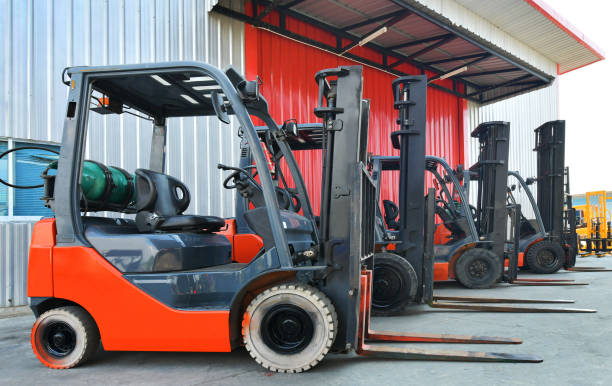Savings and Efficiency Through Propane-Powered Forklifts

The world of forklifts is evolving rapidly, and with new and used forklift prices soaring to unprecedented heights, owners and operators are seeking innovative solutions to maximize their equipment’s lifespan and minimize operating costs. In this era of rising steel and aluminum prices, escalating tariffs, soaring freight expenses, and surging warranty costs, businesses are confronted with the daunting prospect of investing between $20,000 and $60,000 in a single standard-capacity forklift in 2023. The pressure is on to find sustainable alternatives that can both cut costs and enhance operational efficiency.
In this context, propane-powered forklifts have emerged as a beacon of hope for forklift owners and operators who are looking to lead the charge towards a more cost-effective and environmentally friendly future. The reasons for this shift towards propane are manifold and compelling, making it a smart choice for those seeking to optimize their forklift operations.
1. Lower Upfront Cost:
Propane-powered forklifts offer a cost-effective alternative to traditional gasoline and diesel models. Unlike electric forklifts, which can incur a 25% to 30% cost increase due to the purchase of batteries and chargers, propane models do not demand a higher premium. This affordability makes propane an attractive option for businesses looking to save on initial investments.
2. Safe for Indoor Usage:
Propane forklifts provide a safe and environmentally friendly solution for indoor use. Diesel forklifts, notorious for air quality issues, are unsuitable for warehouse operations. In contrast, propane forklifts produce near-zero emissions, making them suitable for both indoor and outdoor use, eliminating the need for separate machines for different purposes.
3. Minimal Downtime:
In today’s fast-paced world, 24-hour facilities cannot afford the downtime required to recharge electric forklifts for 6-8 hours between shifts. Propane forklifts offer a significant advantage, as they can be refueled in under 10 minutes or have their propane bottles swapped out in just five to eight minutes, ensuring quick turnaround times between shifts.
4. Variety of Manufacturer Options:
Propane forklifts are not confined to a single manufacturer; there is a wide range of American-made and internationally manufactured options available. Trusted names like Hyster-Yale, Mitsubishi, Caterpillar, Toyota, and Clark offer high-quality and durable propane-powered machines, providing ample choices for discerning buyers.
5. Useable in Extreme Weather:
Unlike electric forklifts, which suffer reduced capacity in extreme temperatures, propane forklifts deliver consistent performance in harsh conditions. Whether in frigid Alaska at -20 degrees or scorching Texas at 105 degrees, propane forklifts ensure operational reliability, allowing businesses to meet their scheduling demands without compromising shipping deadlines.
6. Scalable to Customer Demand:
Propane forklifts can be adapted to the specific needs of a warehouse. Operators can adjust the size of propane tanks based on mileage and engine run-time, providing flexibility and preventing unnecessary carrying costs during slowdowns.
7. Environmentally Friendly:
In a world increasingly focused on decarbonization, propane forklifts offer an avenue towards success. The availability of renewable propane aligns with the demands of environmentally conscious states like California, which impose stringent emissions standards. Propane offers reliability that electric models often lack, making it a desirable choice for those aiming to reduce their carbon footprint.
The rising costs and demands in the forklift market have prompted owners and operators to explore innovative solutions that not only save costs but also align with environmental goals. In a world where efficiency and sustainability are paramount, propane-powered forklifts are leading the charge towards a brighter, more cost-effective future.













